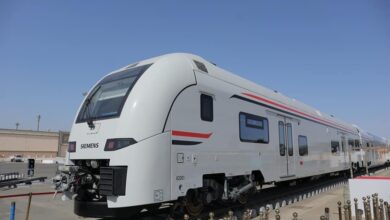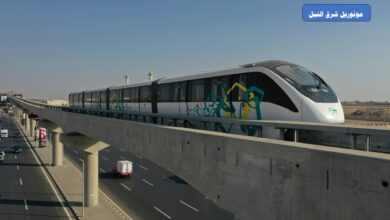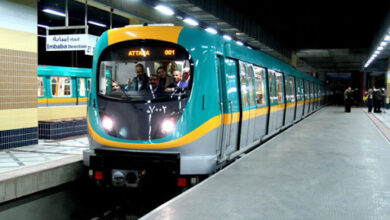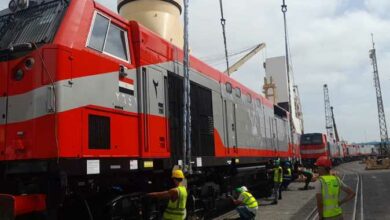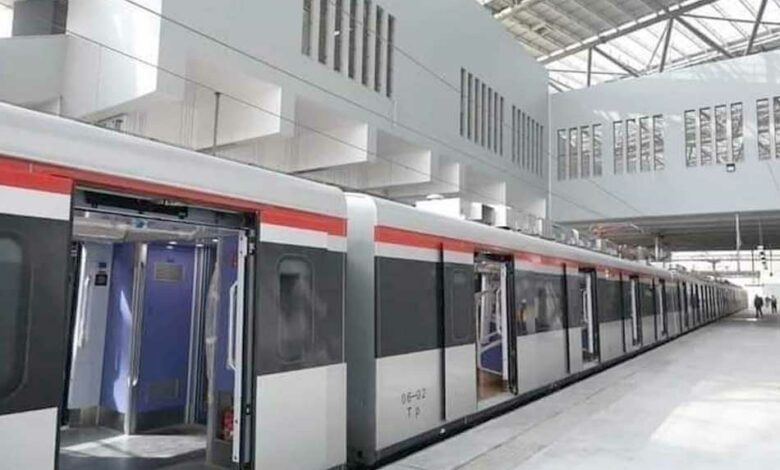
The shares of the Egyptian railway, metro, or electric traction facilities (fast electric train, the metro, LRT and the monorail) were not offered for sale on the Stock Exchange, the Ministry of Transport assured.
In a Sunday statement the Ministry of Transport denied rumors spread online claiming that the ministry planned to sell off several assets of the light electric train and the electric express train to pay off problem projects’ loans.
The projects are carried out by Egyptian consultants and companies with the help of foreign expertise, the statement stressed.
The statement explained that the ministry uses foreign expertise in developing ports and establishing stations and berths, as in the ports of Alexandria, Daqahlia, Damietta, Safaga, Ain Sukhna, Bernice, Adabiya, Arish, Abu Qir and Jarjoub, as well as in the development of railway lines and infrastructure therein and the establishment of new lines – including the high-speed electric train network at a length of 2250km.
The first phase is currently being implemented at a length of 2,000 km by Egyptian companies in cooperation with the international company Siemens.
The statement said part of the first phase of the LRT project (Adly Mansour / the Administrative Capital / the Tenth of Ramadan City) was opened from Adly Mansour Station to the City of Arts and Culture station in the Administrative Capital.
The first phase of the monorail project is planned to open east of the Nile before the end of 2023, and the second phase west of the Nile in mid-2024.
The statement stressed that the ministry is cooperating with Egyptian and international private sectors in the field of managing and operating a number of projects, in order to gain the required experience in management.
It also employs an Egyptian workforce of not less than 90 percent with these projects, the statement added.
Railway development
A contract was also signed with the Austrian company Fuest Alpine to manage and operate the Abbasiya workshop for the production of railway switches.
And a contract was signed with the French company RATP to manage and operate the third line of the metro and the light electric train (LRT), alongside a contract with the French company Alstom to manage, operate and maintain the monorail lines.
Another contract is underway with the German railway company Deutsche Bahn to manage and operate the fast electric train network.
A public public bid is under way for cooperation with an Egyptian or international partner to manage and operate the excellent transport sector in railways, according to the Ministry’s statement.
Railway and metro cooperation contracts take place in the field of management and operation under the usufruct system, so long as the operator bears all operating expenses and depreciation in the exchange rate in return for a percentage of the profits of the Railways Authority.
The high-speed train network consists of four lines at a total length of 2250 km. The first phase is being implemented with at total length of 2,000 km.
The first phase consists of three lines: the first line is Sokhna/Matrouh, the second line at October/Abu Simbel and the third line at Luxor/Safaga.
The project will contribute to the transportation of passengers and goods, as well as the integrated development logistics corridors being established in Egypt.
It will also reduce the time of trips between governorates by over half the time that it currently takes.
The high-speed electric train will cover all parts of Egypt which will serve the new and existing urban and industrial areas, such as the cities of Helwan, 15th of May, Burg Al-Arab, 6th of October, New Minya, New Assiut, and more.
It will also serve tourist areas such as Giza, Sohag, Luxor, Aswan, Abu Simbel, and the Red Sea, alongside new agricultural areas such as in the New Delta, western Minya, Toshka, Sharq al-Owainat or others.
The Ministry of Transport’s statement said that according to economic feasibility studies, the costs of establishing the high-speed electric train will be recouped within 20 years.

